- Home
- Heather Graham
The Night Is Alive Page 5
The Night Is Alive Read online
Page 5
Page 5
“Abby, he said something earlier about working on the books, so you’re probably right. He’s got to be up in his office. I haven’t seen him since before the lunch crowd started coming in. ”
“Thanks, Sullivan,” Abby said. “And, gentlemen, see you later,” she told the three older men seated at the bar.
They responded with an out-of-sync chorus of “Aye, Abby,” “See you, Abby,” “Glad you’re here!”
She smiled and walked over to the winding iron stairway that had been there forever and was watchfully maintained, since it was still used on a daily basis.
The second floor of the establishment had a low ceiling. No food was stored on the upper level, but a long room housed wine, spirits, kitchen utensils and other restaurant supplies. The second floor also had a nice lounge for the employees with lockers and closets full of costumes so no one had to come as a pirate or wench and leave as a pirate or wench. On one side of Gus’s office was the apartment he’d lived in with her grandmother until Brenda Anderson’s death eight years ago. Now he remained there alone. It had a little sitting room and access to a balcony that looked over the rear grounds and out to the river. Beside the sitting room were the two bedrooms, the one Abby had always slept in and the one her grandfather now maintained for himself. On the other side of Gus’s office was the manager’s office, shared by Macy and Grant Green, the night manager.
Gus wasn’t in his office nor was he in the manager’s office. She tried his apartment door. It was open, but Gus was nowhere to be seen. The room was sparse and spotless. The only pictures on the walls here were images of his family.
Abby called his name as she hurried through the apartment, and then went out to check the supply room, as well. She walked past carefully stored rows of different liquors and the wine vault. There were boxes marked Dragonslayer plates, salad bowls and glasses, tablecloths and more, but none of the employees were up there now.
“Gus!” Abby called again, but all she heard in return was the distant sound of the “pirate” track that played during lunch hours.
Frustrated, she went into the lounge, but she seemed to be the only person on the second floor. Abby walked back to Gus’s office and sat at his desk. Despite his age, Gus had entered the age of technology with gusto; he had a new computer, a printer and, to the side, a file cabinet. There was a little office carrier filled with incoming and outgoing mail. She looked anxiously at the incoming mail, hoping she wouldn’t find a stack of doctors’ bills. She didn’t—most of the mail was solicitation letters. She knew he read most of it, always looking to see if there was something the restaurant could use.
“No important mail from doctors or diagnostic clinics,” she murmured aloud.
She didn’t think it was anything to do with his health that had made him summon her in such a manner, and yet couldn’t help being concerned. And curious. Gus had an impressive history. He’d served in the navy during World War II, then he’d returned to Savannah—where he was guaranteed to make a living since his family owned the restaurant—to join the police force. But when his father passed away, he’d left the force to concentrate on the Dragonslayer. She’d admired him all her life. It was thanks to Gus that she’d gone to the FBI academy; he’d encouraged her in every action she’d ever wanted to take. He hadn’t pushed her toward law enforcement, but he’d told her she was smart and could do anything she wanted to do.
There was nothing on his desk giving her any indication that something might be wrong with Gus.
Had he run out to do an errand? She drummed her fingers on the desk and then took the newspaper from her handbag to study the article on the murders.
Both victims had drowned. Both had been found with their hands tied behind their backs. Police were withholding other information, as it was an ongoing investigation. Next of kin had been notified, and anyone with any information regarding either victim was urged to contact law enforcement.
She set the paper down, then started, certain she’d heard a sound coming from the storage area—but she’d just been there. At the rear of the storage area was a wrought-iron stairway from the back of the dining area to the second floor. It was far narrower than the main staircase and it was gated. Diners were prohibited from taking those stairs, as was the staff, she reminded herself. Gus didn’t consider them safe. At one time, they’d allowed pirates who were drinking, wenching and enjoying their liberty in Savannah to escape quickly from the upstairs to the underground passage that led to the river and their ships. While Robert Anderson—brother of Blue, and Abby’s direct ancestor—had been a legitimate businessman, he and his pirate brother were known to be close and Blue Anderson was known to have frequented the tavern. British officers were prone to burst in on the Dragonslayer in search of Blue, and thus the easy escape route.
Thanks to the secret passage, they’d never caught Blue—or any of his men—at the tavern.
The door to the passage was covered with a grating now. Before, it had been hidden under wooden planks that matched the rest of the floor. Now it was a curiosity and guarded by chains, a locked metal grate and the robotic Blue Anderson. Blue was set up beside the grate, and diners loved to have their pictures taken with him.
Abby stood up, then walked down the hall to the storage room. The lights remained on as they always did during business hours. She moved silently along the rows of modern chrome restaurant equipment and boxes to the back of the room.
Halfway there, she paused.
Her heart seemed to rise to her throat and catch there.
Blue! She could see him. He was standing right by the winding iron stairs. He beckoned to her and went down them.
She might have been a kid again, frozen there. For long moments, she wasn’t sure she was even breathing.
He only comes when he’s needed, Gus had told her.
Abby came to life. She sprinted across the room and to the stairs.
A chain stretched across the iron railing of the landing here; it was in place as it should have been.
Abby slid underneath it and quickly followed the winding steps to the main floor.
A few diners lingered, but she’d been quiet and hadn’t been noticed. The grating was in place. She knelt down—and saw that the lock was open.
Heedless of anyone who might see her, Abby lifted the grating. It was dark below. There were lights, but Gus kept them off except for the ones directly by the grate. She hurried down the stairs, calling his name. “Gus!”
She reached the bottom and the dank tunnel that led out to the river.
“Gus!”
Someone seemed to be ahead of her. A shadow moving almost as one with the darkness.
She followed.
And then, ten feet along the tunnel, she found him.
Gus.
She fell to her knees at his side. “Gus, Gus, Gus!”
He didn’t answer. He didn’t feel her touch when she felt for a pulse, for any sign that he was breathing.
He was so cold!
Yes, cold, she realized, horrified and heartbroken.
Stone-cold dead.
2
Augustus Anderson was laid to rest a week after his death at the city’s incredibly beautiful Bonaventure Cemetery.
Abby’s family had a plot there, a group of tombstones that ran the gamut from the mid-1800s, when the cemetery was founded, to the last burial before this one, when her father had passed away. A lovely low fence surrounded the small plot. The number of people who’d come to the church ceremony and now to the cemetery to honor Gus was almost overwhelming. The crowd didn’t fit into the actual plot area and many waited on the other side of the fence, listening to Father McFey as he spoke his final words over the coffin and Gus was left to rest in peace.
Abby barely heard the service. Despite the fact that he’d been gone a week, she was in no less a state of mental turmoil. Friends had sympathetically reminded
her of his age and that he’d died quickly and hadn’t suffered a long and debilitating illness, which would have mortified him. She didn’t need to be told. She knew she was blessed that she’d had him for so many years—and that he’d been lucky to have led such a robust and healthy life.
All of that was true.
But it wasn’t right. What had happened wasn’t right.
Gus, she was certain, had been murdered.
Making the suggestion to the police had merely brought her more sympathy.
Gus had been as old as the hills. She’d recognized the looks that the officers who were called to the scene had given her.
Poor girl’s lost her only living relative. She just came out of the academy at Quantico, and she can’t accept an old—old!—man dying, so she had to turn it into a mystery.
An autopsy had revealed that he’d died because his heart had given out.
She believed that. But his heart had given out for a reason.
Gus had expected her; he’d been anxious to see her. Gus never got up and suddenly decided he needed to go down into the old pirate tunnels—he hadn’t been down there for years. To ensure that the tunnel remained safe and supported the structures above, he sent workers down every few months. He maintained the tunnel because of its historic value. It wasn’t a place he went for exercise or to commune with his ancestors or anything of the kind.
She’d tried to be logical. Gus had been very old. She’d heard of a number of cases like his, cases in which someone had led a long and healthy life, and just dropped dead. Young runners occasionally dropped dead, for God’s sake.
She couldn’t forget how and when it had happened. Couldn’t forget what he’d said.
Come home. I need you.
She wished now that she’d insisted he talk to her over the phone, that she’d demanded he provide some sort of explanation.
But she hadn’t.
And still his words haunted her. If she didn’t discover why he’d said those words to her, they’d haunt her for the rest of her life.
She suddenly realized that everyone was silent, that Father McFey was looking at her. He’d finished with the ceremony, and everyone was waiting for her.

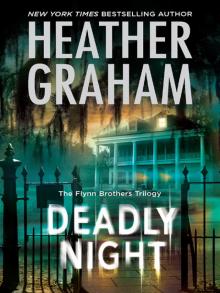 Deadly Night
Deadly Night The Uninvited
The Uninvited Dust to Dust
Dust to Dust Heart of Evil
Heart of Evil A Perfect Obsession
A Perfect Obsession The Keepers
The Keepers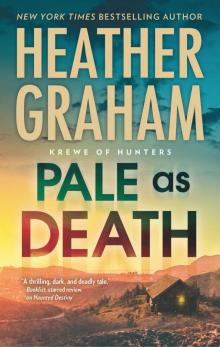 Pale as Death
Pale as Death Phantom Evil
Phantom Evil Hallow Be the Haunt
Hallow Be the Haunt Night of the Wolves
Night of the Wolves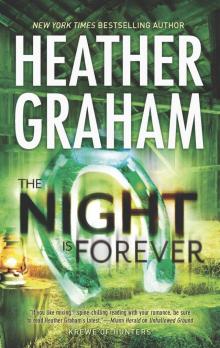 The Night Is Forever
The Night Is Forever Golden Surrender
Golden Surrender Kiss of Darkness
Kiss of Darkness Beneath a Blood Red Moon
Beneath a Blood Red Moon A Dangerous Game
A Dangerous Game Ghost Shadow
Ghost Shadow Long, Lean, and Lethal
Long, Lean, and Lethal Fade to Black
Fade to Black The Rising
The Rising And One Wore Gray
And One Wore Gray Rebel
Rebel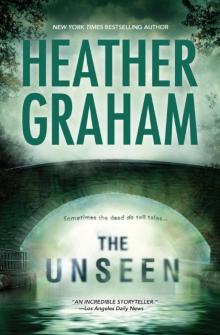 The Unseen
The Unseen The Night Is Watching
The Night Is Watching The Evil Inside
The Evil Inside The Unspoken
The Unspoken The Night Is Alive
The Night Is Alive The Unholy
The Unholy Nightwalker
Nightwalker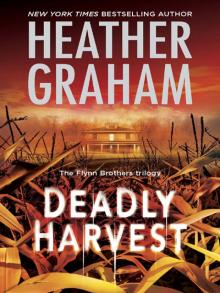 Deadly Harvest
Deadly Harvest An Angel for Christmas
An Angel for Christmas A Pirate's Pleasure
A Pirate's Pleasure American Drifter
American Drifter Realm of Shadows
Realm of Shadows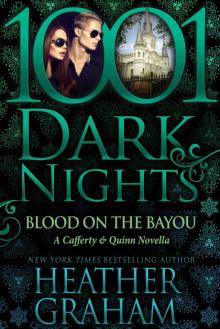 Blood on the Bayou
Blood on the Bayou Sacred Evil
Sacred Evil Dying to Have Her
Dying to Have Her The Cursed
The Cursed Captive
Captive Hurricane Bay
Hurricane Bay Drop Dead Gorgeous
Drop Dead Gorgeous Ghost Memories
Ghost Memories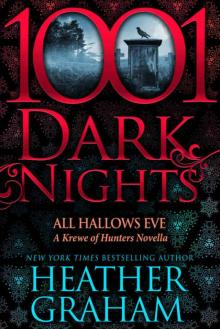 All Hallows Eve
All Hallows Eve Dying Breath
Dying Breath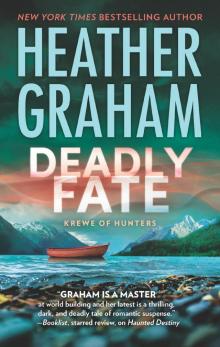 Deadly Fate
Deadly Fate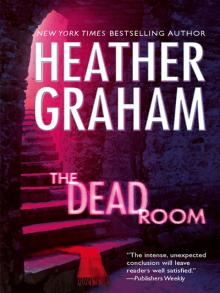 The Dead Room
The Dead Room Lord of the Wolves
Lord of the Wolves Ghost Night
Ghost Night Ghost Walk
Ghost Walk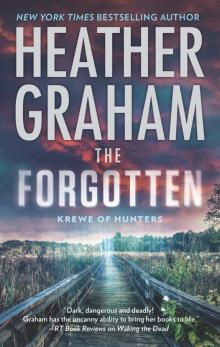 The Forgotten
The Forgotten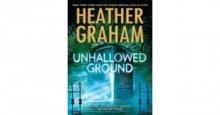 Unhallowed Ground
Unhallowed Ground One Wore Blue
One Wore Blue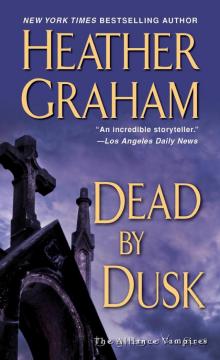 Dead By Dusk
Dead By Dusk Night of the Blackbird
Night of the Blackbird The Dead Play On
The Dead Play On Bride of the Night
Bride of the Night Wicked Deeds
Wicked Deeds The Forbidden
The Forbidden Triumph
Triumph Out of the Darkness
Out of the Darkness Love Not a Rebel
Love Not a Rebel The Last Noel
The Last Noel Tall, Dark, and Deadly
Tall, Dark, and Deadly The Death Dealer
The Death Dealer Dead on the Dance Floor
Dead on the Dance Floor Law and Disorder
Law and Disorder Dark Rites
Dark Rites New Year's Eve
New Year's Eve Hostage At Crystal Manor
Hostage At Crystal Manor And One Rode West
And One Rode West Home in Time for Christmas
Home in Time for Christmas Killing Kelly
Killing Kelly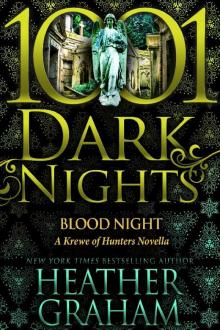 Blood Night
Blood Night Tangled Threat (Mills & Boon Heroes)
Tangled Threat (Mills & Boon Heroes)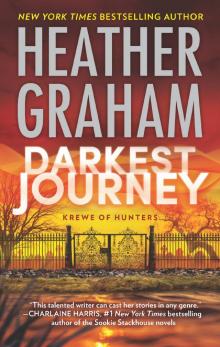 Darkest Journey
Darkest Journey Glory
Glory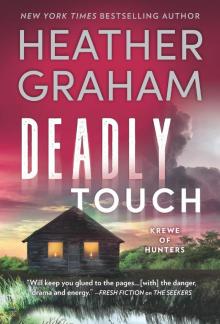 Deadly Touch
Deadly Touch An Unexpected Guest
An Unexpected Guest Night of the Vampires
Night of the Vampires Seize the Wind
Seize the Wind Ghost Moon
Ghost Moon The Vision
The Vision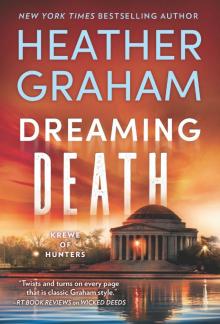 Dreaming Death
Dreaming Death Conspiracy to Murder
Conspiracy to Murder Horror-Ween (Krewe of Hunters)
Horror-Ween (Krewe of Hunters)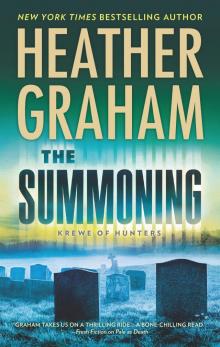 The Summoning
The Summoning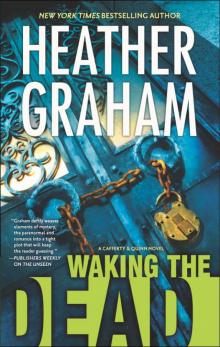 Waking the Dead
Waking the Dead Danger in Numbers
Danger in Numbers The Hidden
The Hidden Sweet Savage Eden
Sweet Savage Eden Tangled Threat ; Suspicious
Tangled Threat ; Suspicious Mother's Day, the Krewe, and a Really Big Dog
Mother's Day, the Krewe, and a Really Big Dog Picture Me Dead
Picture Me Dead The Killing Edge
The Killing Edge St. Patrick's Day
St. Patrick's Day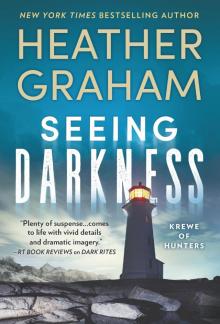 Seeing Darkness
Seeing Darkness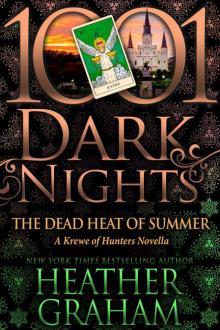 The Dead Heat of Summer: A Krewe of Hunters Novella
The Dead Heat of Summer: A Krewe of Hunters Novella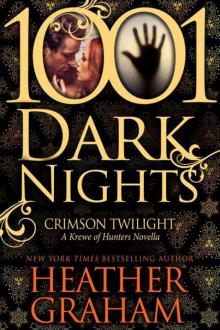 Crimson Twilight
Crimson Twilight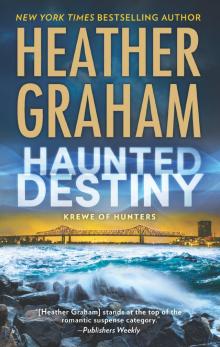 Haunted Destiny
Haunted Destiny Devil's Mistress
Devil's Mistress Banshee
Banshee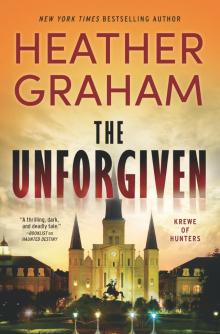 The Unforgiven
The Unforgiven The Final Deception
The Final Deception A Horribly Haunted Halloween
A Horribly Haunted Halloween Haunted Be the Holidays
Haunted Be the Holidays Deadly Gift
Deadly Gift Easter, the Krewe and Another Large White Rabbit
Easter, the Krewe and Another Large White Rabbit Haunted
Haunted The Silenced
The Silenced Let the Dead Sleep
Let the Dead Sleep Christmas, the Krewe, and Kenneth
Christmas, the Krewe, and Kenneth Big Easy Evil
Big Easy Evil Sinister Intentions & Confiscated Conception
Sinister Intentions & Confiscated Conception Haunted Be the Holidays: A Krewe of Hunters Novella
Haunted Be the Holidays: A Krewe of Hunters Novella Blood Red
Blood Red A Perilous Eden
A Perilous Eden Slow Burn
Slow Burn Strangers In Paradise
Strangers In Paradise Bitter Reckoning
Bitter Reckoning Krewe of Hunters, Volume 1: Phantom Evil ; Heart of Evil ; Sacred Evil ; The Evil Inside
Krewe of Hunters, Volume 1: Phantom Evil ; Heart of Evil ; Sacred Evil ; The Evil Inside Do You Fear What I Fear?
Do You Fear What I Fear? The Face in the Window
The Face in the Window Krewe of Hunters, Volume 3: The Night Is WatchingThe Night Is AliveThe Night Is Forever
Krewe of Hunters, Volume 3: The Night Is WatchingThe Night Is AliveThe Night Is Forever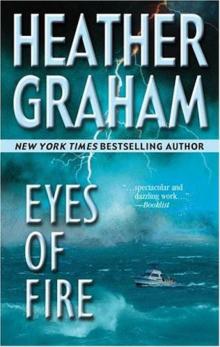 Eyes of Fire
Eyes of Fire Apache Summer sb-3
Apache Summer sb-3 Sensuous Angel
Sensuous Angel In the Dark
In the Dark Knight Triumphant
Knight Triumphant Hours to Cherish
Hours to Cherish Tender Deception
Tender Deception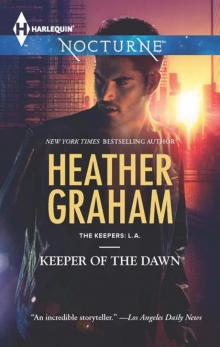 Keeper of the Dawn tkl-4
Keeper of the Dawn tkl-4 Apache Summer
Apache Summer Between Roc and a Hard Place
Between Roc and a Hard Place Echoes of Evil
Echoes of Evil The Game of Love
The Game of Love Sacred Evil (Krewe of Hunters)
Sacred Evil (Krewe of Hunters) Bougainvillea
Bougainvillea Tender Taming
Tender Taming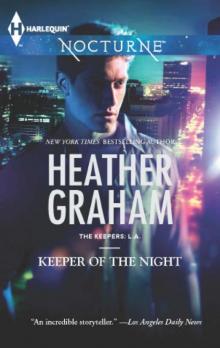 Keeper of the Night (The Keepers: L.A.)
Keeper of the Night (The Keepers: L.A.) Lonesome Rider and Wilde Imaginings
Lonesome Rider and Wilde Imaginings Lucia in Love
Lucia in Love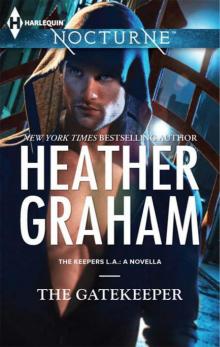 The Gatekeeper
The Gatekeeper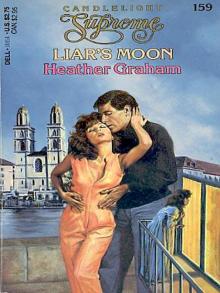 Liar's Moon
Liar's Moon Dark Rites--A Paranormal Romance Novel
Dark Rites--A Paranormal Romance Novel A Season for Love
A Season for Love Krewe of Hunters, Volume 6: Haunted Destiny ; Deadly Fate ; Darkest Journey
Krewe of Hunters, Volume 6: Haunted Destiny ; Deadly Fate ; Darkest Journey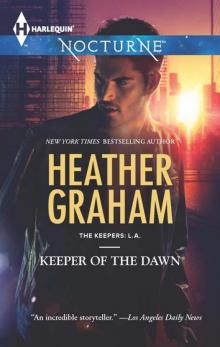 Keeper of the Dawn (The Keepers: L.A.)
Keeper of the Dawn (The Keepers: L.A.)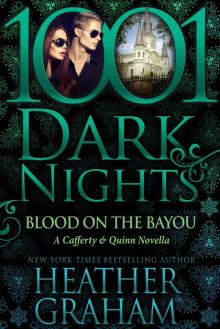 Blood on the Bayou: A Cafferty & Quinn Novella
Blood on the Bayou: A Cafferty & Quinn Novella Double Entendre
Double Entendre A Perfect Obsession--A Novel of Romantic Suspense
A Perfect Obsession--A Novel of Romantic Suspense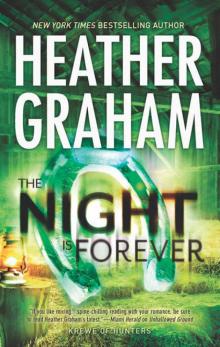 The Night Is Forever koh-11
The Night Is Forever koh-11 The Di Medici Bride
The Di Medici Bride When Irish Eyes Are Haunting: A Krewe of Hunters Novella
When Irish Eyes Are Haunting: A Krewe of Hunters Novella The Keepers: Christmas in Salem: Do You Fear What I Fear?The Fright Before ChristmasUnholy NightStalking in a Winter Wonderland (Harlequin Nocturne)
The Keepers: Christmas in Salem: Do You Fear What I Fear?The Fright Before ChristmasUnholy NightStalking in a Winter Wonderland (Harlequin Nocturne)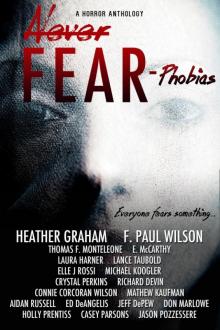 Never Fear
Never Fear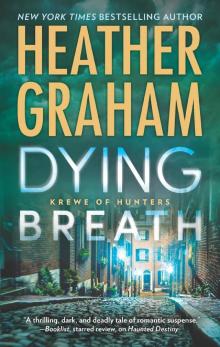 Dying Breath--A Heart-Stopping Novel of Paranormal Romantic Suspense
Dying Breath--A Heart-Stopping Novel of Paranormal Romantic Suspense If Looks Could Kill
If Looks Could Kill This Rough Magic
This Rough Magic Heather Graham's Christmas Treasures
Heather Graham's Christmas Treasures Hatfield and McCoy
Hatfield and McCoy The Trouble with Andrew
The Trouble with Andrew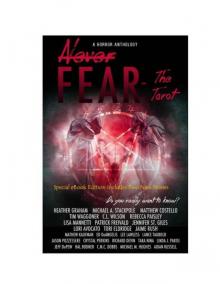 Never Fear - The Tarot: Do You Really Want To Know?
Never Fear - The Tarot: Do You Really Want To Know? Blue Heaven, Black Night
Blue Heaven, Black Night Forbidden Fire
Forbidden Fire Come the Morning
Come the Morning Dark Stranger sb-4
Dark Stranger sb-4 Lie Down in Roses
Lie Down in Roses Red Midnight
Red Midnight Krewe of Hunters Series, Volume 5
Krewe of Hunters Series, Volume 5 Night, Sea, And Stars
Night, Sea, And Stars Snowfire
Snowfire Quiet Walks the Tiger
Quiet Walks the Tiger Mistress of Magic
Mistress of Magic For All of Her Life
For All of Her Life Runaway
Runaway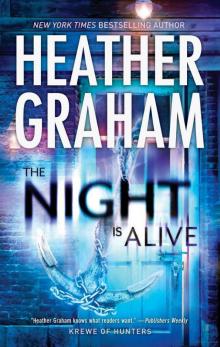 The Night Is Alive koh-10
The Night Is Alive koh-10 The Evil Inside (Krewe of Hunters)
The Evil Inside (Krewe of Hunters)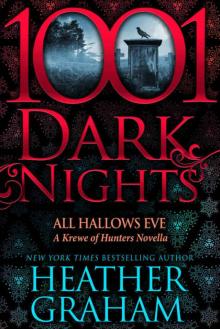 All Hallows Eve: A Krewe of Hunters Novella (1001 Dark Nights)
All Hallows Eve: A Krewe of Hunters Novella (1001 Dark Nights) Tomorrow the Glory
Tomorrow the Glory Ondine
Ondine Angel of Mercy & Standoff at Mustang Ridge
Angel of Mercy & Standoff at Mustang Ridge Bride of the Tiger
Bride of the Tiger When Next We Love
When Next We Love Heather Graham Krewe of Hunters Series, Volume 4
Heather Graham Krewe of Hunters Series, Volume 4 A Season of Miracles
A Season of Miracles Realm of Shadows (Vampire Alliance)
Realm of Shadows (Vampire Alliance) When We Touch
When We Touch Serena's Magic
Serena's Magic Rides a Hero sb-2
Rides a Hero sb-2 All in the Family
All in the Family Handful of Dreams
Handful of Dreams A Stranger in the Hamptons
A Stranger in the Hamptons Krewe of Hunters, Volume 2: The Unseen ; The Unholy ; The Unspoken ; The Uninvited
Krewe of Hunters, Volume 2: The Unseen ; The Unholy ; The Unspoken ; The Uninvited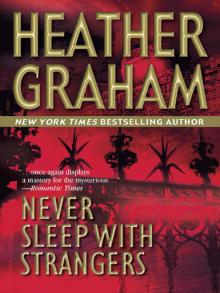 Never Sleep With Strangers
Never Sleep With Strangers Eden's Spell
Eden's Spell A Magical Christmas
A Magical Christmas Forever My Love
Forever My Love King of the Castle
King of the Castle Night Moves (60th Anniversary)
Night Moves (60th Anniversary) The Island
The Island Borrowed Angel
Borrowed Angel Hallow Be the Haunt: A Krewe of Hunters Novella
Hallow Be the Haunt: A Krewe of Hunters Novella Why I Love New Orleans
Why I Love New Orleans The Last Cavalier
The Last Cavalier A Matter of Circumstance
A Matter of Circumstance Heather Graham's Haunted Treasures
Heather Graham's Haunted Treasures Tempestuous Eden
Tempestuous Eden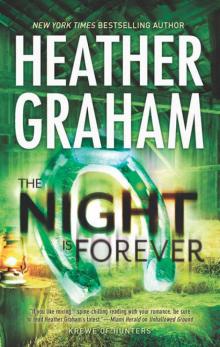 Krewe 11 - The Night Is Forever
Krewe 11 - The Night Is Forever